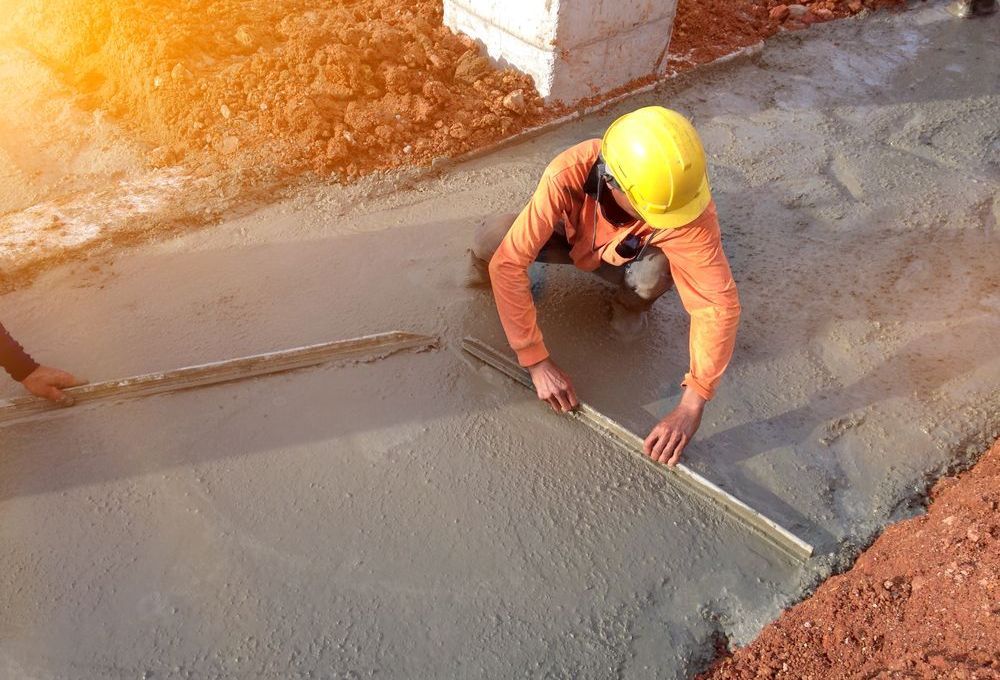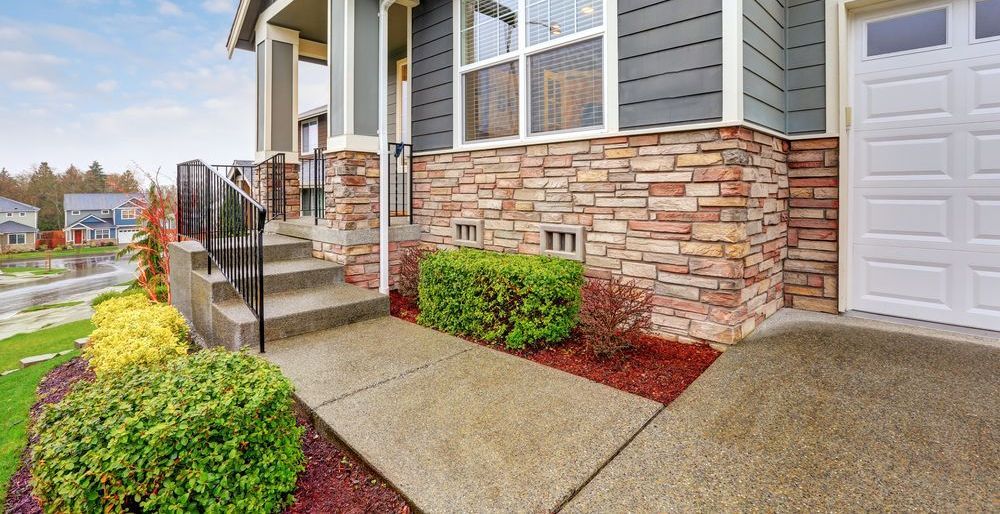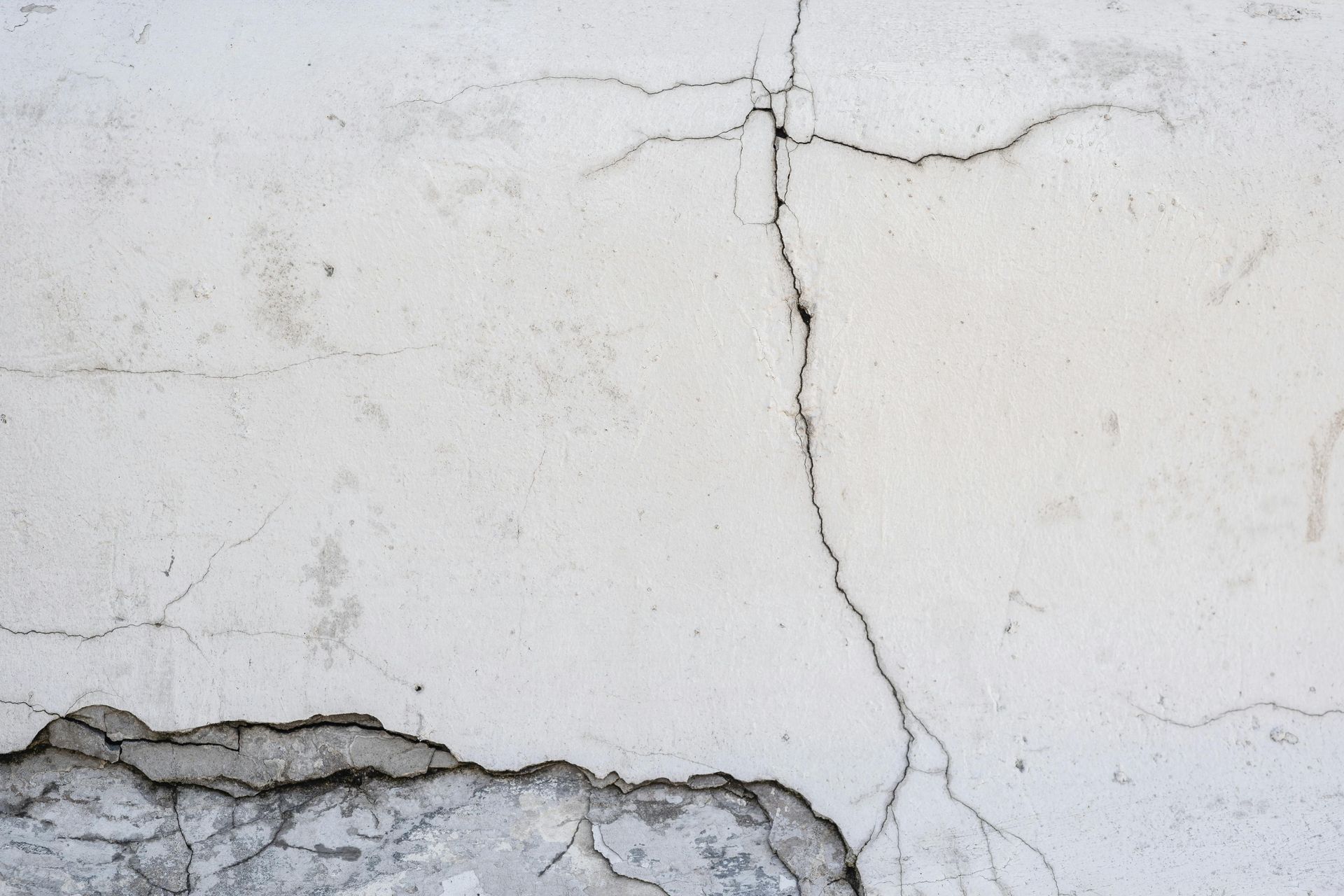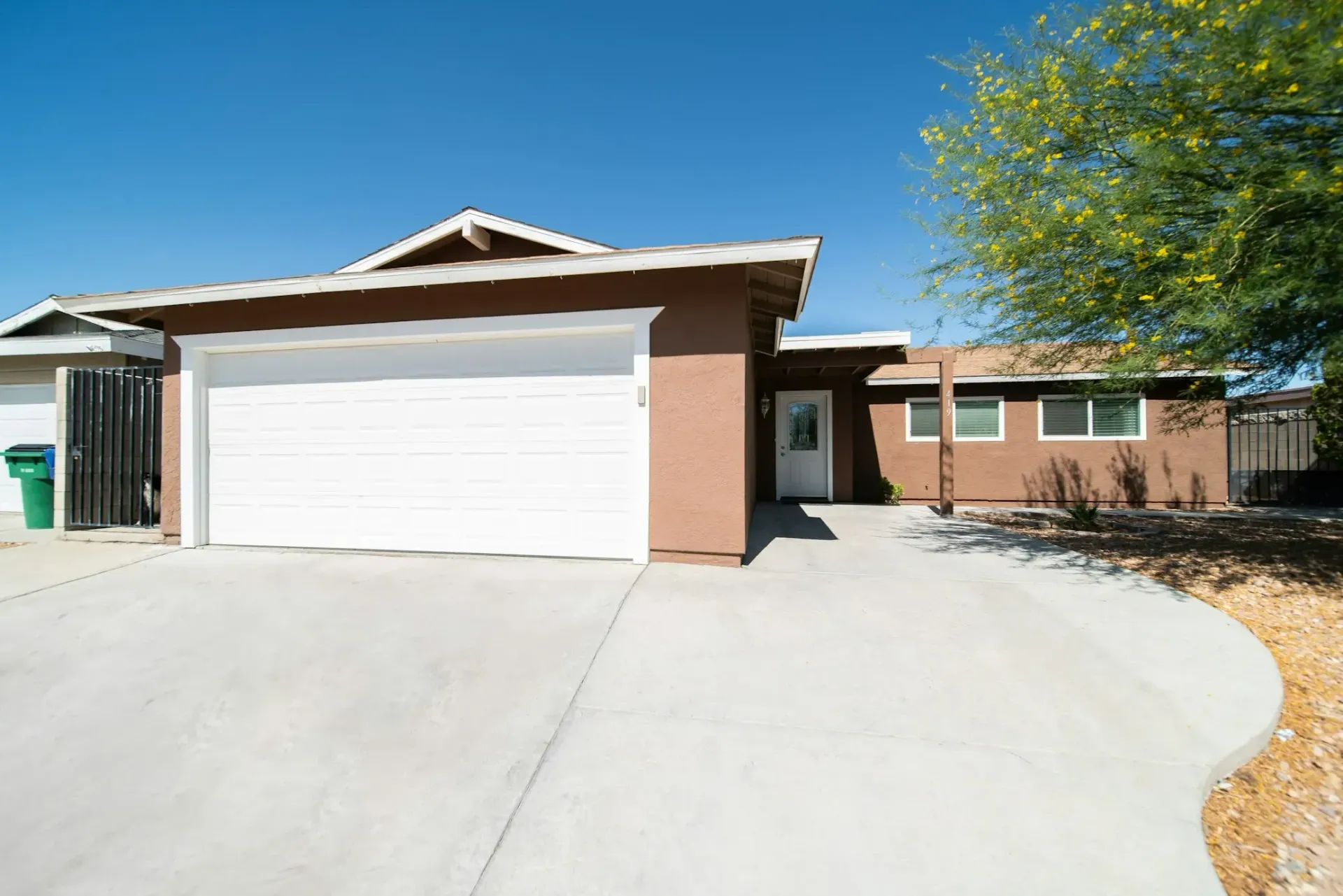Cement vs. Concrete Driveways: Key Differences Explained
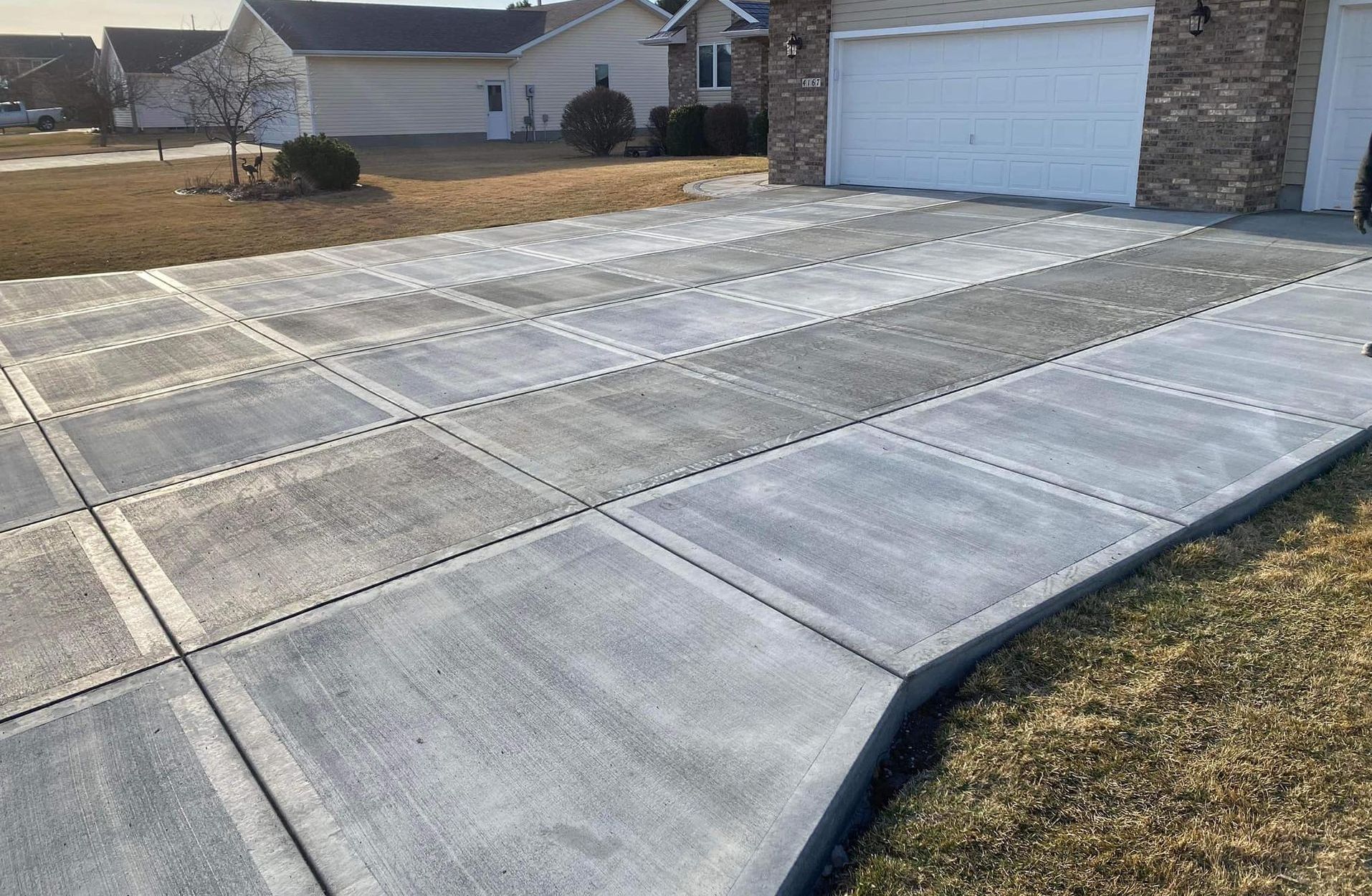
What’s the Difference Between Cement and Concrete Driveways?
Planning a new driveway can be overwhelming, especially when you hear people using "cement" and "concrete" like they’re the same thing. But here’s the deal—they’re not. Cement is just one part of concrete, and the two have completely different roles.
In this blog, we’ll clear up the confusion and explain what sets cement and concrete apart. By the end, you’ll know exactly which one works best for your driveway project. Whether you’re building new or giving your old driveway a facelift, this guide has you covered.
Understanding Cement and Concrete
When people talk about driveways, they often mix up "cement" and "concrete." But these two materials aren’t the same. Cement is a part of concrete, but it’s not strong enough to be used on its own. Concrete, on the other hand, is a complete mix that includes cement, making it durable and perfect for driveways. Let’s break it down further.
What is Cement?
Cement is a fine powder made from materials like limestone, clay, and gypsum. It’s a binding agent, which means its main job is to hold things together. When you mix cement with water, it forms a paste that binds sand, gravel, or other aggregates into a solid mass.
On its own, cement isn’t used for driveways. It’s too brittle and prone to cracking under heavy loads. Instead, it’s a key ingredient in concrete, where it plays the role of the "glue" that keeps everything together.
What is Concrete?
Concrete is a mix of cement, water, sand, and gravel (or crushed stone). These ingredients come together to form one of the strongest and most durable materials used in construction. Concrete is used for driveways because it can handle heavy weights and resist wear over time.
Think of it this way: cement is like flour in a cake recipe. On its own, it’s important but not enough. You need other ingredients (like sand and gravel) to make something strong and long-lasting—just like concrete.
Key Differences Between Cement and Concrete Driveways
If you’re deciding between a cement or concrete driveway, understanding the differences is essential. While cement and concrete are connected, they aren’t interchangeable. Concrete is the standard choice for driveways, and here’s why.
Composition
Cement is just one ingredient in concrete. Cement on its own doesn’t have the strength or durability needed for driveways. Concrete, however, is a mixture of cement, water, and aggregates like sand and gravel. This combination creates a tough, durable surface that can handle the daily wear and tear of vehicles and weather.
Durability and Strength
Concrete is significantly stronger and more durable than cement alone. The aggregates in concrete provide additional strength, making it less likely to crack or crumble under pressure. Cement, by itself, is brittle and can’t stand up to heavy loads, which is why you’ll never see a driveway made entirely of cement.
Cost Implications
At first glance, concrete driveways might seem more expensive because they require additional materials. However, concrete is more cost-effective in the long run. A driveway made with concrete lasts much longer and requires less frequent repairs compared to one made with weaker materials.
Maintenance Requirements
Concrete driveways are relatively low-maintenance but do need occasional care to stay in great shape. Periodic resealing protects the surface from moisture and wear, while regular cleaning prevents staining. Cement, by comparison, would require constant repairs if used for a driveway because it’s not built to last on its own.
Advantages of Concrete Driveways
Concrete is the go-to material for driveways, and it’s easy to see why. Its durability, versatility, and ability to handle heavy use make it a smart investment for any homeowner. Let’s look at the key benefits.
Longevity
Concrete driveways can last 30 to 50 years when properly installed and maintained. That’s far longer than most alternatives, like asphalt or gravel. While it may cost more upfront, its long lifespan makes concrete a cost-effective option over time.
Design Versatility
Concrete isn’t just practical—it’s also customizable. You can choose from a variety of finishes, colors, and textures to match the style of your home. Stamped concrete can even mimic the look of brick, stone, or tile, giving your driveway a high-end appearance without the high-end price tag.
Load-Bearing Capacity
A concrete driveway can handle the weight of multiple vehicles, including larger trucks and RVs. Its strength and load-bearing capacity make it ideal for homes with heavy traffic. Cement alone wouldn’t hold up under this kind of pressure.
Common Misconceptions
When it comes to driveways, it’s easy to get confused by the terms "cement" and "concrete." Many people use them interchangeably, but this misunderstanding can lead to mistakes during planning or construction. Let’s clear up some of the most common misconceptions.
“Cement and Concrete Are the Same”
This is the biggest myth. Cement is a component of concrete, not a standalone material for driveways. Think of cement as the glue and concrete as the finished product. Without aggregates like sand and gravel, cement isn’t strong enough for driveway use.
“A Cement Driveway Is Cheaper”
Some homeowners think using cement alone will save money, but this isn’t true. Cement by itself won’t last under heavy loads or changing weather conditions, which means constant repairs and higher long-term costs. Concrete, with its mix of cement and aggregates, is a better investment.
“All Concrete Looks the Same”
Concrete is often associated with plain gray slabs, but modern techniques allow for endless design possibilities. You can stain, stamp, or polish concrete to match your style, proving it’s as versatile as it is durable.
“Concrete Driveways Don’t Crack”
While concrete is strong, it’s not immune to cracking. Temperature changes, heavy loads, and improper installation can cause cracks over time. The key is to use high-quality materials, ensure proper installation, and invest in regular maintenance like sealing.
“Concrete Driveways Are Hard to Maintain”
Some believe concrete driveways are a hassle to care for, but this isn’t true. With occasional resealing and cleaning, concrete driveways stay in excellent condition for decades. Compared to alternatives like asphalt, concrete requires less frequent maintenance.
Conclusion
When it comes to durable, long-lasting, and versatile solutions for your property, concrete is the clear choice. Whether you need a driveway that stands up to heavy use, a decorative patio to elevate your outdoor space, or sturdy sidewalks for added functionality, concrete offers unmatched value and reliability. Unlike cement, which lacks the durability for large-scale projects, concrete’s mix of cement, aggregates, and water creates a strong foundation that lasts for decades.
If you’re in Grand Island, Nebraska, trust Maine Street Concrete for all your concrete needs. From driveways, walkways, and patios to decorative concrete, retaining walls, and commercial or residential projects, Maine Street Concrete delivers expert craftsmanship tailored to your vision. Contact them today to bring your ideas to life and enhance your property with professional, high-quality concrete solutions.
FAQs
Can cement be used by itself for driveways?
No, cement alone isn’t suitable for driveways. It’s a component of concrete, but on its own, it lacks the strength and durability needed to handle heavy loads or resist cracking over time.
How long do concrete driveways last?
With proper installation and maintenance, concrete driveways can last 30 to 50 years. Regular resealing and cleaning can help extend their lifespan and keep them looking great.
What are the maintenance requirements for a concrete driveway?
Concrete driveways are relatively low-maintenance. Periodic resealing protects against moisture and wear, while occasional cleaning prevents stains and keeps the surface looking fresh.
How does weather affect concrete driveways?
Concrete can expand and contract with temperature changes, which might lead to cracks if not properly installed or maintained. Sealing the driveway and using control joints during installation can minimize these issues.
What are the benefits of decorative concrete?
Decorative concrete allows you to customize your driveway, patio, or walkway with unique textures, patterns, and colors. It adds curb appeal and can mimic materials like stone or brick for a fraction of the cost.
Is concrete a good option for commercial properties?
Yes, concrete is an excellent choice for commercial properties. Its durability, low maintenance requirements, and versatility make it ideal for high-traffic areas like parking lots, walkways, and industrial spaces.


